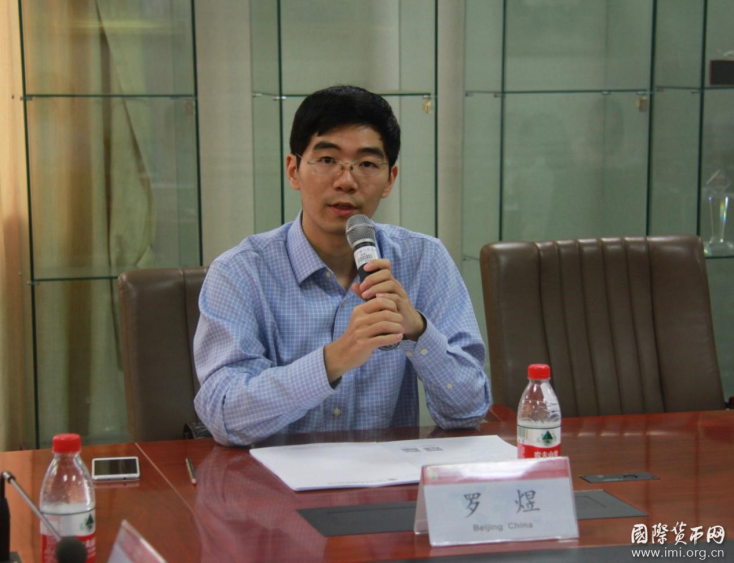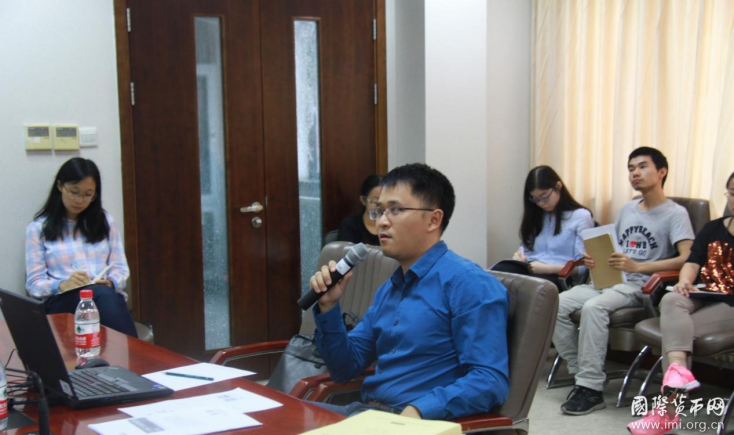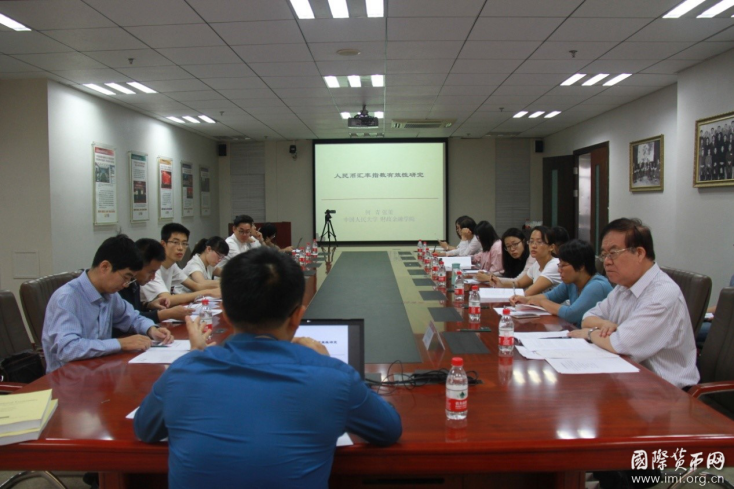Macro-Finance Salon (No. 35): Efficacy of the RMB Exchange Rate Index and the Exchange Rate Reform
2016-09-18 IMI
Luo Yu, IMI research fellow, was hosting the meeting
Professor He Qing made an in-depth analysis on the report in terms of the current exchange rate formation mechanism, the efficacy of the exchange rate index, and the exchange rate reform. He pointed out that in order to offset the negative impact of large overseas capital inflows in recent year, the People’s Bank of China had frequently intervened in the foreign exchange market, causing the RMB exchange rate system to be questioned internationally. Due to this intervention, the RMB exchange rate did not fully reflect the actual supply and demand in the foreign exchange market. Meanwhile, if the currencies’ weights in the SDR were not clear, it would cause a lack of transparency in the exchange rate system, and participants in the exchange rate markets could not make reasonable expectations on the RMB exchange rate. In the second half of 2015, China Foreign Exchange Trading System (CFETS) reformed its central parity rate system and released RMB exchange rate index. This would help to weaken the U.S. dollar’s influence on RMB exchange rate formation and changes in foreign exchanges reserves, reduce RMB’s reliance on the U.S dollar, and enhance communications between the government and the market.
Professor He Qing was delivering a speech
Professor He Qing used VAR model, OLS and Arbitrage-free model of interest rate parity to make quantitative analysis on the CFETS RMB exchange rate index and on the exchange rate indices referenced to the BIS basket and the SDR basket. The result showed that currently the exchange rate index referenced to the SDR basket would be beneficial to reasonable expectations on RMB exchange rate, narrowing the gap between the onshore and offshore prices of RMB, and safeguarding financial stability. He suggested that more currencies should be concluded in the CFETS RMB exchange rate index, and in setting up weights, finance, currency’s position and market size should be considered to improve efficiency.
The meeting
Mr. Wei Benhua made a profound comment on the report. He acknowledged the approaches and results of the report and offered his own ideas on some deficiencies. He also encouraged people to reflect on different economic phenomenon. It is noted that He Qing is a special researcher of IMI, a professor and the Associate Head of the School of Finance in RUC. His research mainly focused on international finance and financial markets. He has published in many academic journals, such as Financial Management, Journal of Comparative Economics, China Economic Review, Journal of Business Ethics, and Economic Research Journal.